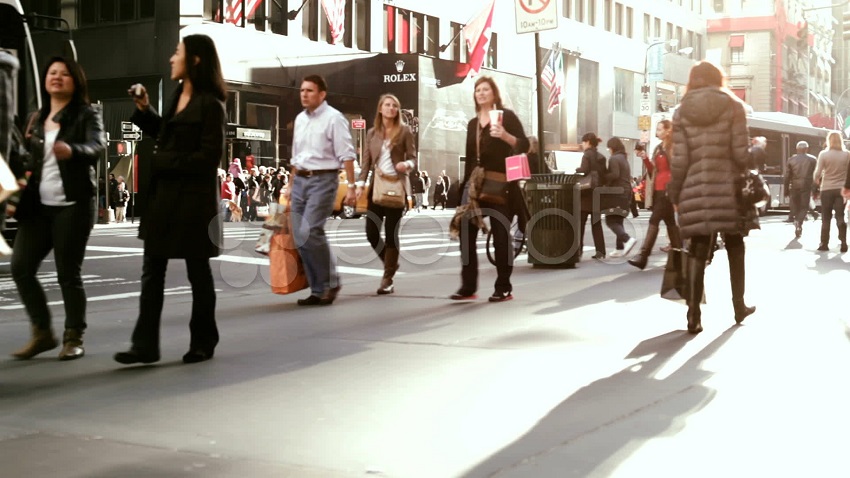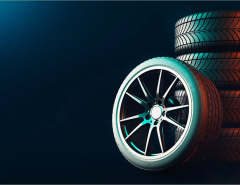Modern transportation has undoubtedly revolutionized the way we travel and connect with the world around us. From cars and airplanes to trains and ships, these modes of transport have made our lives more convenient and accessible. However, along with their numerous benefits, modern transport systems also bring certain disadvantages that need to be acknowledged. In this article, we will explore the drawbacks associated with modern transport and shed light on the challenges they pose to individuals and society as a whole.
Modern transport systems have significantly transformed the way we travel, enhancing our mobility and connecting distant places like never before. However, it is crucial to recognize the downsides of these advancements to address their negative impacts effectively.
Traffic Congestion
One of the most evident disadvantages of modern transport is the persistent issue of traffic congestion. As more vehicles crowd the roads, especially in urban areas, traffic jams become increasingly frequent and time-consuming. This leads to wasted time, increased fuel consumption, and elevated levels of stress among commuters.
Environmental Impact
Modern transport heavily relies on fossil fuels such as gasoline and diesel, contributing to environmental degradation. The combustion of these fuels releases harmful greenhouse gases into the atmosphere, leading to climate change and air pollution. Additionally, the construction of transportation infrastructure often involves deforestation and habitat destruction, further harming the environment.
Dependence on Fossil Fuels
The dependence on fossil fuels for modern transport leaves us vulnerable to fluctuations in oil prices and geopolitical tensions. Moreover, as these resources are finite, their depletion poses a long-term sustainability challenge. Finding alternative energy sources and transitioning to cleaner modes of transport is essential to mitigate these risks.
Health and Safety Risks
Modern transport presents various health and safety risks. Road accidents, air crashes, and train derailments can result in severe injuries and loss of life. Additionally, prolonged sitting during long journeys contributes to sedentary lifestyles, obesity, and associated health problems. Adequate safety measures, improved infrastructure, and promoting active transportation can help address these concerns.
Infrastructure Costs
The development and maintenance of modern transport infrastructure require significant financial investment. Governments and private entities bear the burden of funding and managing these projects, which can strain public budgets and divert resources from other essential sectors like healthcare and education.
Social Isolation
While modern transport facilitates long-distance travel, it can also contribute to social isolation. With the rise of personal vehicles and air travel, people often prioritize efficiency over social interactions during their journeys. This trend can weaken community bonds and reduce face-to-face connections among individuals.
Economic Disparities
Modern transport systems can exacerbate economic disparities within societies. Access to efficient transportation is essential for employment opportunities, education, and healthcare services. However, disadvantaged communities may face limited access to reliable transportation, hindering their social and economic mobility.
Noise Pollution
The constant movement of vehicles and aircraft produces high levels of noise pollution, particularly in densely populated areas. Noise pollution can have detrimental effects on mental and physical health, causing stress, sleep disturbances, and hearing impairments.
Lack of Physical Activity
With the convenience of modern transport, people are increasingly inclined to choose sedentary modes of travel over active forms like walking or cycling. This lack of physical activity contributes to a sedentary lifestyle, leading to health issues such as obesity, cardiovascular diseases, and diabetes.
Loss of Cultural Heritage
As modern transport systems expand, they often necessitate the construction of new roads, railways, and airports. Unfortunately, these developments can result in the destruction or displacement of cultural heritage sites and historical landmarks. Preserving our cultural identity and heritage becomes a challenge in the face of rapid transport infrastructure growth.
Limited Accessibility
Despite the advancements in modern transport, certain regions and communities still face challenges in terms of accessibility. Remote areas, islands, and underdeveloped regions may have inadequate transport connections, isolating them from essential services, opportunities, and resources.
Maintenance and Repair Expenses
Maintaining and repairing modern transport infrastructure is a costly endeavor. As roads, bridges, and tunnels age, they require regular upkeep to ensure safety and efficiency. The financial burden of maintenance can strain public budgets and divert funds from other critical social programs.
Cybersecurity Threats
As transport systems become increasingly interconnected and reliant on technology, they become vulnerable to cybersecurity threats. Hackers can target transportation networks, potentially disrupting operations, compromising passenger safety, and even causing accidents. Robust cybersecurity measures are crucial to safeguard these systems and protect the public.
Conclusion
While modern transport offers unparalleled convenience and connectivity, it also brings forth several disadvantages that need to be addressed. Traffic congestion, environmental impact, dependence on fossil fuels, health and safety risks, and economic disparities are among the challenges we face. By recognizing these drawbacks, we can work towards developing sustainable and inclusive transport systems that prioritize the well-being of individuals and the environment.
FAQs
- How does modern transport contribute to traffic congestion?
Modern transport has led to an increase in the number of vehicles on the roads, resulting in frequent traffic congestion, wasted time, and increased stress among commuters.
- What are the environmental impacts of modern transport?
Modern transport heavily relies on fossil fuels, leading to the emission of greenhouse gases and contributing to climate change and air pollution. The construction of transport infrastructure can also harm the environment through deforestation and habitat destruction.
- How does modern transport affect social connections?
While modern transport enables long-distance travel, it can also contribute to social isolation as people prioritize efficiency over social interactions during their journeys.
- Are there health risks associated with modern transport?
Modern transport presents health risks such as sedentary lifestyles due to prolonged sitting during long journeys, which can lead to obesity and associated health problems.
- What measures can be taken to mitigate the disadvantages of modern transport?
Mitigating the disadvantages of modern transport requires promoting sustainable alternatives, investing in efficient infrastructure, ensuring safety measures, and prioritizing inclusivity and accessibility in transport planning and design.
Tags: disadvantages, drawbacks, environmental impact, modern transport, transportation challenges





Leave a Reply